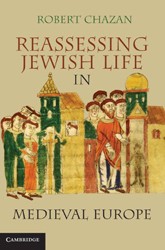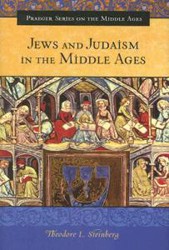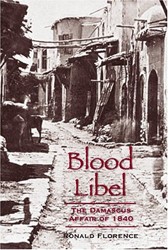The blood libel is often evoked as an eternal example of antisemitism. The notion that Jews murder Christian children in order to extract blood for use in the baking of matzah may epitomize the persecution of Jews during the medieval era, but such accusations continued to be levied through the Renaissance and Modern periods.
E. M. Rose’s The Murder of William of Norwich is nothing less than an antidote to the impression that antisemitism — and the blood libel in particular — has always existed. This superbly researched and elegantly written monograph shatters the amorphous myth by recounting its political, economic, and religious contexts over a four-decade period in England and France of the twelfth century. Through an analysis of innumerable sources, including a close reading of Brother Thomas of Monmouth’s Life and Passion of Saint William of Norwich, Rose uncovers the historical William, the making of his sainthood, and the precarious, though not powerless, position of Jews in medieval England.
Rose shows that the first blood libel developed over several years, and did not immediately take root as an anti-Jewish trope. It originated in the trial of Simon de Novers, an impoverished knight accused of murdering his Jewish banker. Simon was unable to pay his debts following the military and financial debacle that was the Second Crusade. The knight’s bishop, William Turbe, successfully defended Simon before the royal court through obfuscation, insisting that the slain banker be charged in the murder of his former employee William of Norwich, and that the entire Jewish community be deemed culpable in William’s death. Rose argues that this last point initiated the radical view that Jews as a whole were deemed unholy and dangerous, a sharp contrast from long-held beliefs that Jews were to be tolerated in Christendom.
Rose subsequently shows that Brother Thomas’s account of William’s life and the latter’s eventual sainthood were cynical attempts to make Norwich a place of pilgrimage. Similarly, the ritual murder accusation in Blois in 1171, for which more than thirty Jews (including children) were burned in a synagogue, was the result of political intrigue and power plays. With an eye for detail and feel for the time period, Rose traces the spread of blood libel accusations from Norwich to four additional cities, presenting a very real and tangible history long in need of elucidation.
The Murder of William of Norwich is an important contribution to medieval Jewish history, and to the study of English and European history as a whole. In this particular context, Jews are not formulaic victims as much as individuals simultaneously crucial and irrelevant to larger political and social machinations. This book is fascinating and enlightening, and even readers not usually drawn to the medieval period should appreciate Rose’s eminently readable prose.
David Sclar studies Jewish history and culture in the early modern period. He earned his doctorate at the Graduate Center of the City University of New York, and has held fellowships at Harvard University, Princeton University, the University of Oxford, the University of Toronto, New York University, and the Center for Jewish History. He worked for several years in the Special Collections of the Library of the Jewish Theological Seminary, and presently teaches history at the Frisch School.




